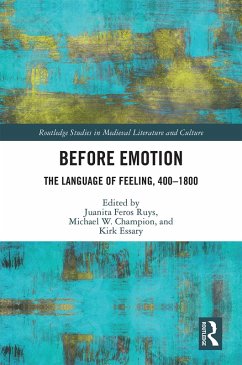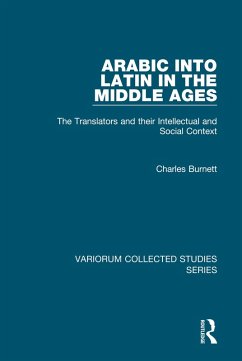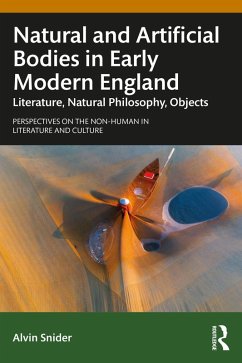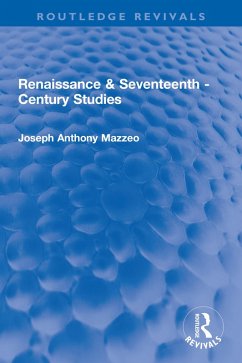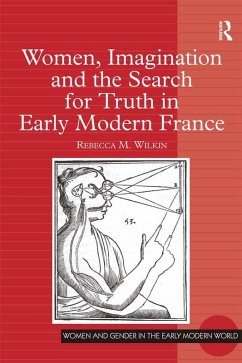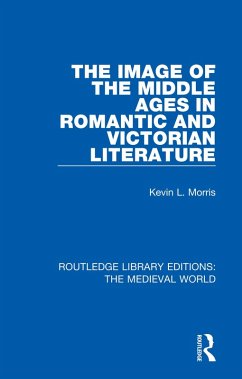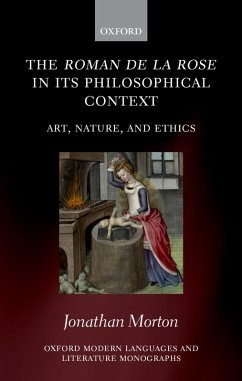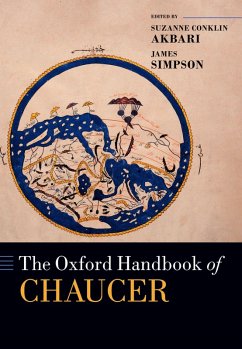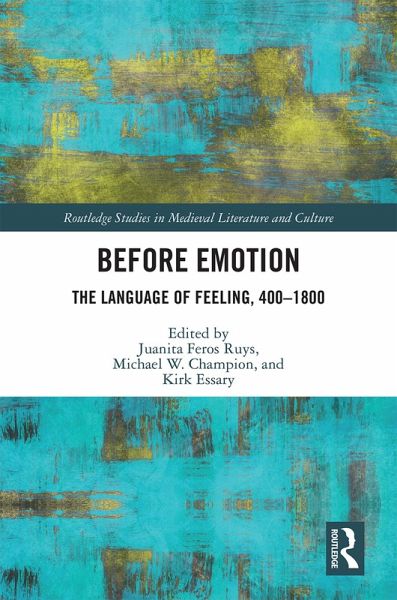
Before Emotion: The Language of Feeling, 400-1800 (eBook, PDF)
Versandkostenfrei!
Sofort per Download lieferbar
42,95 €
inkl. MwSt.
Weitere Ausgaben:

PAYBACK Punkte
21 °P sammeln!
Before Emotion: The Language of Feeling, 400-1800 advances current interdisciplinary research in the history of emotions through in-depth studies of the European language of emotion from late antiquity to the modern period. Focusing specifically on the premodern cognates of 'affect' or 'affection' (such as affectus, affectio, affeccioun, etc.), an international team of scholars explores the cultural and intellectual contexts in which emotion was discussed before the term 'emotion' itself came into widespread use. By tracing the history of key terms and concepts associated with what we identify...
Before Emotion: The Language of Feeling, 400-1800 advances current interdisciplinary research in the history of emotions through in-depth studies of the European language of emotion from late antiquity to the modern period. Focusing specifically on the premodern cognates of 'affect' or 'affection' (such as affectus, affectio, affeccioun, etc.), an international team of scholars explores the cultural and intellectual contexts in which emotion was discussed before the term 'emotion' itself came into widespread use. By tracing the history of key terms and concepts associated with what we identify as 'emotions' today, the volume offers a first-time critical foundation for understanding pre- and early modern emotions discourse, charts continuities and changes across cultures, time periods, genres, and languages, and helps contextualize modern shifts in the understanding of emotions.
Dieser Download kann aus rechtlichen Gründen nur mit Rechnungsadresse in A, B, BG, CY, CZ, D, DK, EW, E, FIN, F, GR, HR, H, IRL, I, LT, L, LR, M, NL, PL, P, R, S, SLO, SK ausgeliefert werden.




